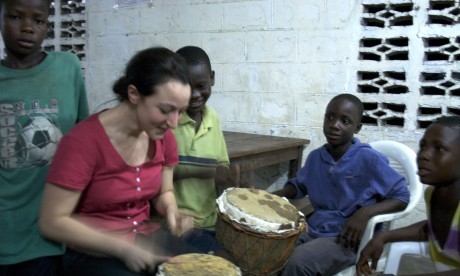The biblical mandate to “go therefore and make disciples of all the nations” (Matthew 28:19), should have come with this disclaimer: If you are a missioner in a conflict zone, your emotional and psychological well-being will be shredded, you will destroy your life as you currently know it and, by the way, you may be killed. Any romantic ideas about Christians traveling overseas on mission are patently false.
Still want to go? Caveat emptor.
Yet, some people still do.
According to the most recent data from the United States Catholic Mission Association, in 2008-2009 there were 3,352 Catholic missioners sent overseas. Most belong to religious orders: sisters (1,962), priests (784) and brothers (171). They were sent to countries in Latin America and the Caribbean (721), in Africa (418), and in Asia (395).
Why is it so psychologically treacherous for missioners to go into conflict zones?
“Trauma is an occupational hazard,” said Robert Grant, a psychologist in Oakland, Calif., who has spent more than 20 years teaching, writing, training and counseling missioners and others.
Grant has trained U.S. and Canadian combat troops and chaplains on trauma. He is the primary author of the combat trauma and operational stress protocol currently used by the U.S. Marine Corps for its troops worldwide.
His work in missioner trauma grew out of his earlier work on child sexual abuse in the church.
The impetus to send missioners to foreign lands came in 1961 from Pope John XXIII, who made a special request that U.S. religious orders send 10 percent of its members to Latin America as missioners. Men and women religious responded to this call.
“Missioners are the Marines of the church. Many are gung-ho,” Grant said.
“Missioners in conflict zones will experience either direct trauma (e.g., rape, kidnapping, torture, gun violence) or vicarious trauma (e.g., sleep disorders, burnout, loss of identity, social withdrawal) due to serving people suffering direct trauma or both,” he said. Continue reading
Sources
Additional reading
News category: Features.




